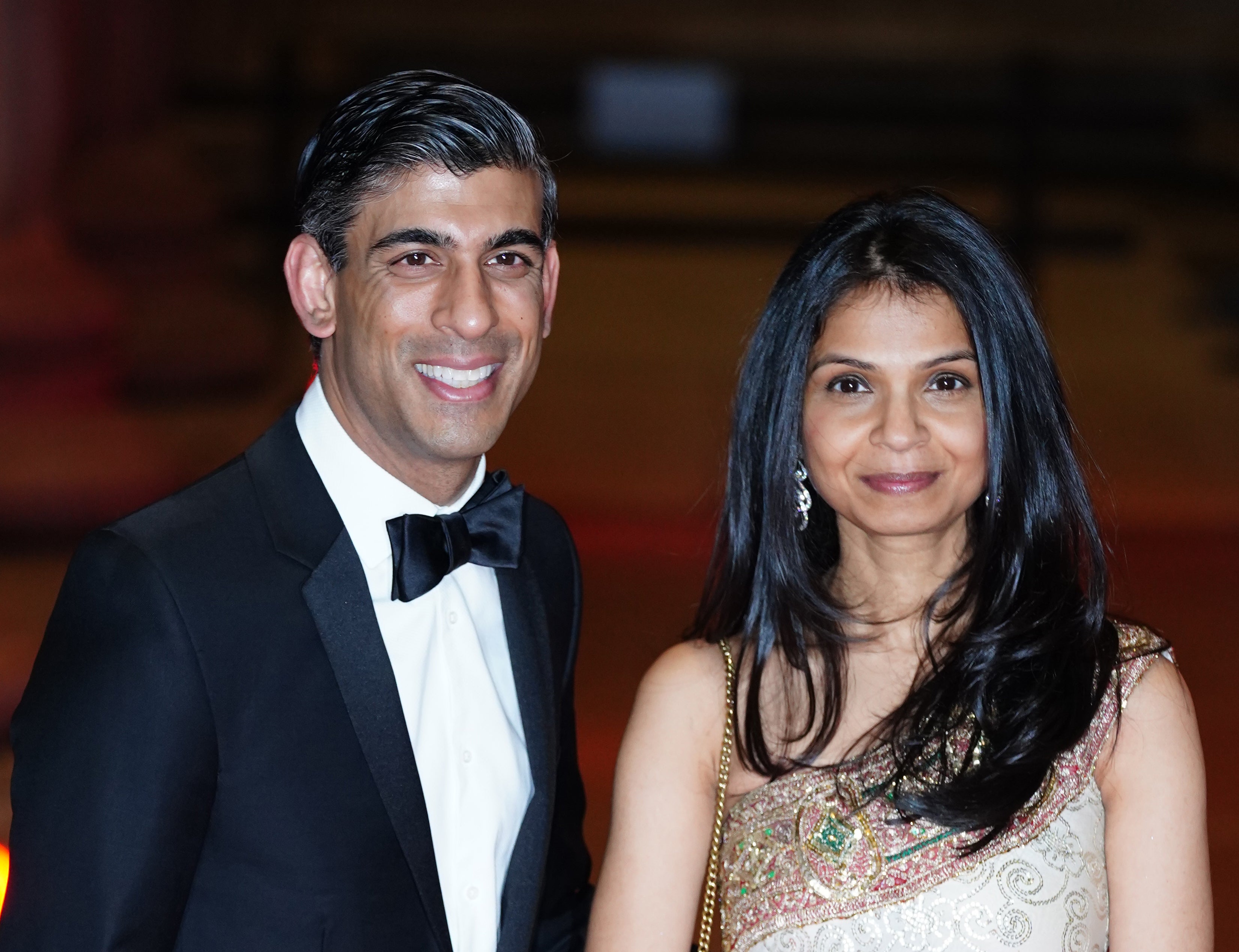Why is Chancellor Rishi Sunak’s wife Akshata Murty caught up in a row about tax?
What is the row all about?

Rishi Sunak’s wife Akshata Murty has been caught up in a row about her tax status in the UK, with the Chancellor saying she is the victim of smears from Labour.
Ms Murty, the fashion-designer daughter of a billionaire, who married Mr Sunak in 2009, is thought to be worth hundreds of millions of pounds.
- What is the row all about?
The Independent first revealed that Ms Murty had non-dom status, which typically applies to someone who was born overseas and spends much of their time in the UK but still considers another country to be their permanent residence or “domicile”.
It means she does not pay UK tax on foreign income or gains but does pay an annual charge of £30,000 to keep that status.
While the set up is legal, critics have said the use of the scheme looks bad at a time when the Chancellor has increased the tax burden on the British public and while the cost of living soars.
- What do we know about Ms Murty’s finances?
Some reports suggest Ms Murty is richer than the Queen.
She is reported to hold a 0.91% stake in Infosys, an IT business founded by her father, and has received £11.6 million in dividends from the Indian firm in the past year.
The non-dom status means she would not have to pay UK tax at a rate of 39.35% on dividends. India sets the rate for non-residents at 20%, but this can fall to 10% for those who are eligible to benefit from the UK’s tax treaty with India.
Public records show Infosys has received more than £50 million in UK public sector contracts since 2015.
- What has Ms Murty said?
A spokeswoman for the Chancellor’s wife said Ms Murty’s Indian citizenship is key.
She said: “Akshata Murty is a citizen of India, the country of her birth and parent’s home.
“India does not allow its citizens to hold the citizenship of another country simultaneously. So, according to British law, Ms Murty is treated as non-domiciled for UK tax purposes.
“She has always and will continue to pay UK taxes on all her UK income.”
Citizenship of an individual living in the UK is irrelevant when it comes to non-dom status as it is possible for a UK citizen, or someone born in the UK, to claim they are a non-dom.
- But is it as simple as that?
Tax experts suggest it is not and that while a person cannot decide if they are non-domicile, they can choose whether they are non-domiciled for tax purposes.
Professor Richard Murphy, the Sheffield University academic who co-founded the Tax Justice Network, said Ms Murty was likely correctly non-domiciled for tax purposes when she first came to the UK but questioned whether that was still the case now.
Status is not given automatically because an individual must apply for the exemption in their tax status when filling out their UK tax return.
- Is it a smear?
In an interview with The Sun, Mr Sunak said his wife was the victim of smears and pointed the finger at the Labour Party.
Allies of the Chancellor also suggested the information may have been leaked by No 10, but Downing Street denied this.
Mr Sunak said it was “unpleasant” to read attacks on his wife, “especially when she hasn’t done anything wrong”.
“She hasn’t broken any rules. She’s followed the letter of the law,” Mr Sunak told The Sun.
- But what does the ministerial code say?
The ministerial code says outside interests must be reported to the Permanent Secretary of their department. It is understood Mr Sunak did report his wife’s status to the Cabinet Office and the Treasury was also aware.
The ministerial code says the register of interests “should also cover interests of the minister’s spouse or partner and close family which might be thought to give rise to a conflict”.
- What happens now?
Some have suggested the saga has highlighted how the rules need to be reformed.
Senior Conservative MP Tobias Ellwood said non-dom rules are outdated.
The chairman of the Commons Defence Select Committee told Sky News: “If there are bigger, more fundamental questions about the existence of the non-dom status, that is something for us as a country – perhaps and indeed Parliament – to debate.
“In my view, they are out of date. They do need to be reviewed.”
Bookmark popover
Removed from bookmarks